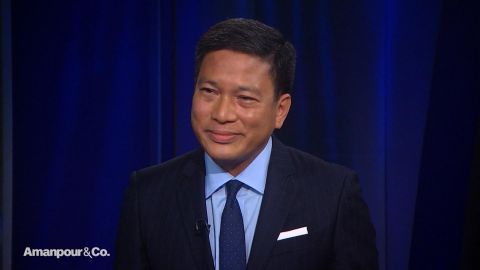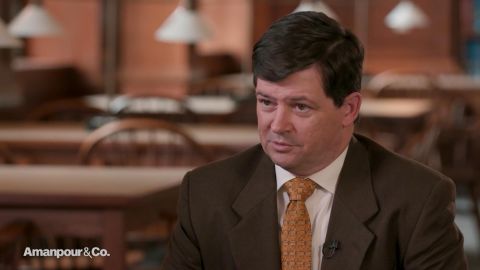Read Transcript EXPAND
CHRISTIANE AMANPOUR: What do you think is going to happen? I mean, the court then ruled that the government had to do everything it could to make sure that genocide doesn’t take place in the future and to try to rectify the genocide that has already taken place. What does that mean for politics inside Burma right now? What do you expect from Aung San Suu Kyi going forward?
THANT MYINT-U, AUTHOR, “THE HIDDEN HISTORY OF BURMA”: You know, I think on the one hand, the ICJ case has focused a lot of tension inside the country on what happened in the Northern Rakhine state in 2016, 2017. And I think because Aung San Suu Kyi herself said to the court that war crimes likely took place. I think that’s the first admission by the government of the scale of human rights abuses that happened, especially in 2017. So, hopefully, that will open up a new kind of discussion. Because a lot of people in the country have always denied that any kind of severe human rights abuses took place and the narrative has been not just different but kind of diametrically opposed to the narrative in the story that we see outside of the country. But at the same time, what’s happened with her appearance at the ICJ has been an enormous boost to her popularity at home —
AMANPOUR: Really?
MYINT-U: — and an enormous boost to a kind of Burmese nationalism because people believe — I think a lot of people believe whatever the case is, I mean, whatever the truth is, and I think a lot of people now are much more willing to accept that civilians were killed and people were forced to leave, that it doesn’t amount to genocide and that she was doing the right thing in defending, not just the army, but defending the country.
AMANPOUR: That’s really interesting to hear. You and I first met in the former Yugoslavia in Bosnia where genocide was taking place at the time, it was called ethnic cleansing. So, you’re very familiar with what genocide looks like. Do you think its genocide in the Rakhine State in Burma?
MYINT-U: I think in terms of the legal definition — I mean, the court will rule in a matter of months or year. So, I think it’s undeniable that terrible things, atrocities happened to civilians and that people were forced to cross. I’m reluctant to say anything that would — I think and this is the big problem for me, I mean, that would inadvertently lead to the kind of punitive measures that we’ve seen against Burma in the past, like economic sanctions, which then wind up just hurting millions of ordinary poor people. But I think the problem —
AMANPOUR: You’re concerned about the sanctions? Yes.
MYINT-U: I’m concerned about the sanctions. And the second thing, maybe even more, and to be honest, is that, you know, we were in Bosnia together. So, we saw ethnic cleansing happen. We’ve seen genocide, ethnic cleansing, severe human rights abuses in other parts of the world. I think the big problem with Myanmar or Burma the past 20 years is this constant effort by people to put that situation into an existing box. And the situation in Burma is so — not just so complicated, but unique in many ways and so urgent. And I think, you know, there is a real possibility that things could even get much worse over the coming years. And I think we really have to understand and analyze Burma on its own terms.
About This Episode EXPAND
Author Thant Myint-U explains the hidden history of Burma. Actor Steve Coogan and director Michael Winterbottom discuss fast fashion and the new film “Greed.” Journalist Jeremy Wallace sits down with Walter Isaacson to break down the issues that are important to Texas voters going into Super Tuesday.
LEARN MORE


